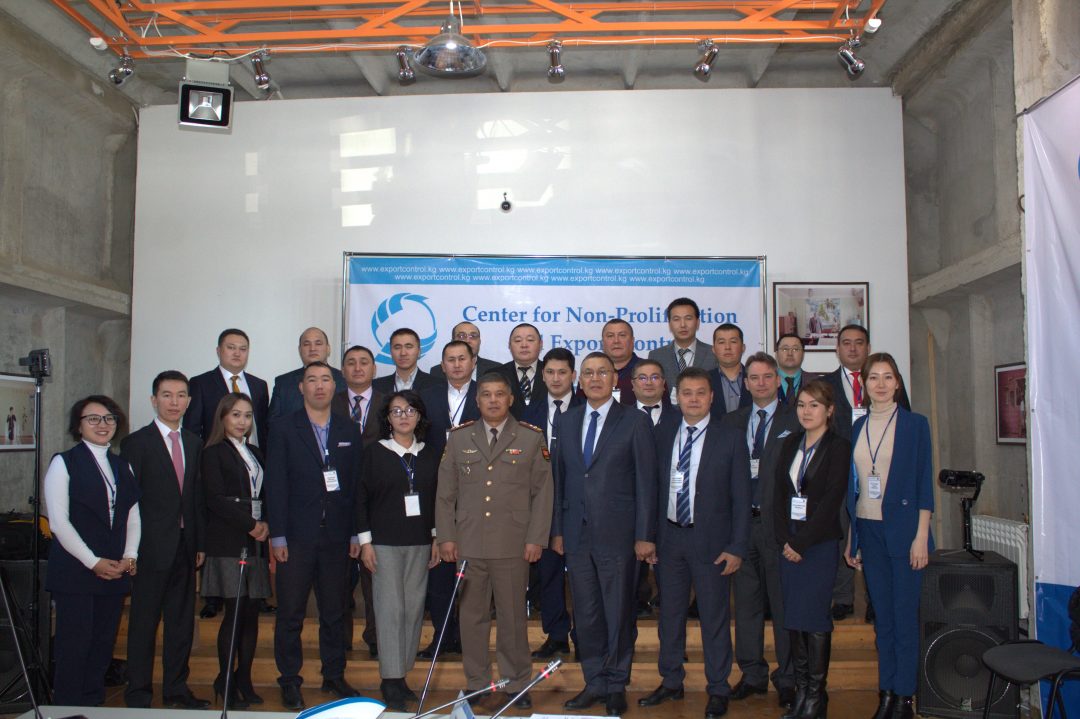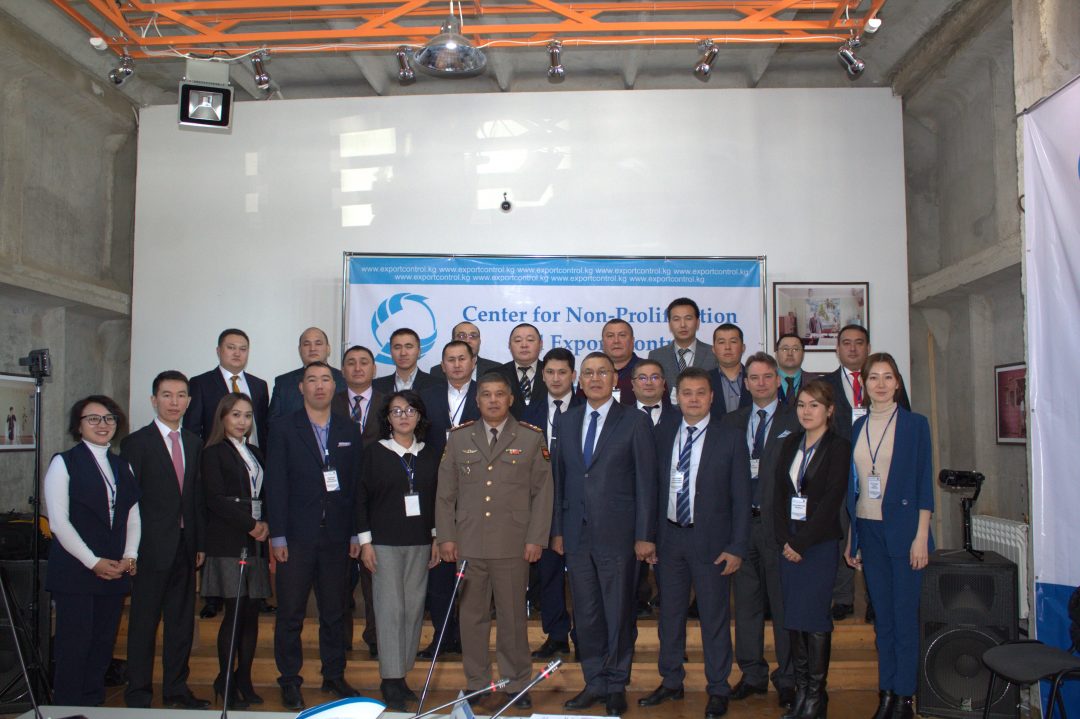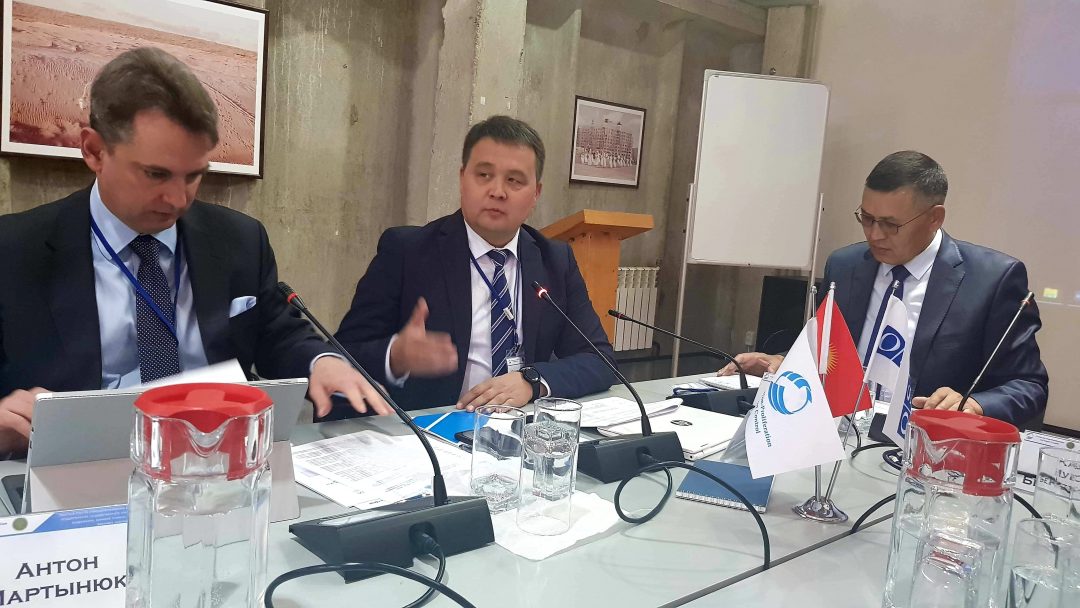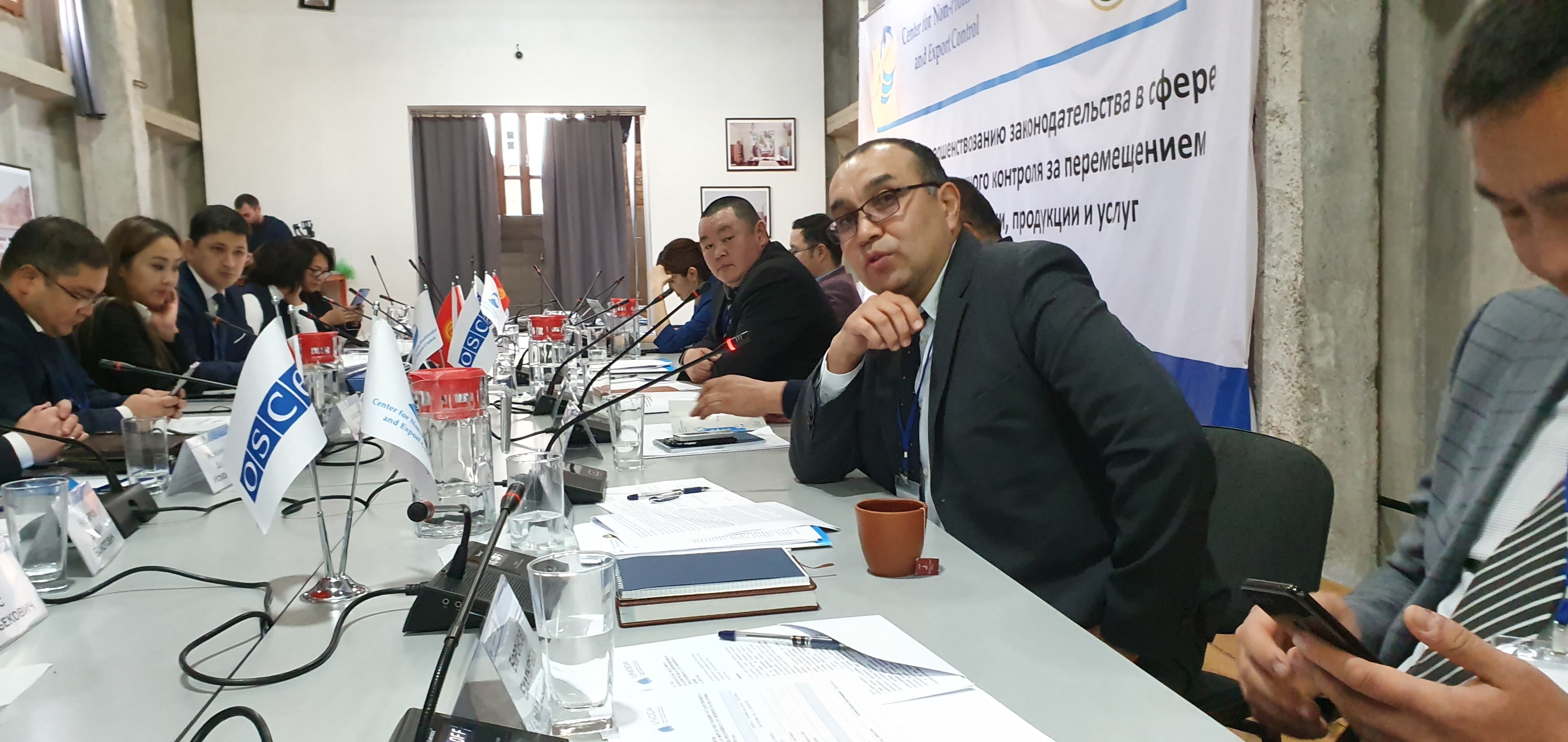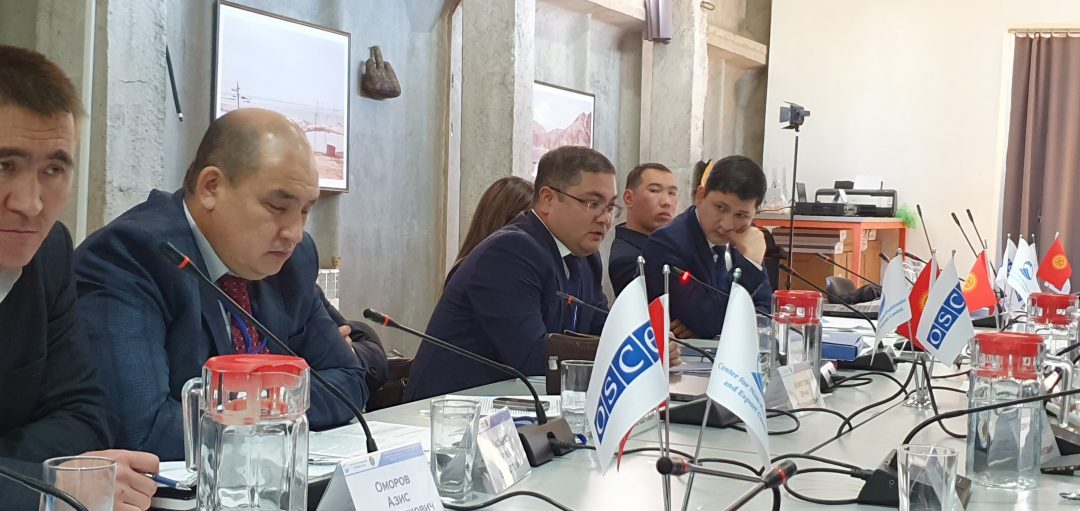The Center for Non-proliferation and Export Control (hereinafter – the Center), with the
assistance of the United Nations Office for Disarmament Affairs, together with the State
Committee for Defense Affairs of the Kyrgyz Republic and other interested State bodies, is
implementing a project to optimize legislation on State control over the movement of weapons,
military equipment, goods and services.
An interdepartmental working group was set up to improve legislation in the area of trafficking
in weapons and military equipment, which also included experts from the Center.
As part of the implementation of this project, a National Roundtable was held in the Kyrgyz
Republic from 14 to 16 November, 2019 and was opened by Nurseit Kedeev – Deputy Chairman
of the State Committee for Defense Affairs of the Kyrgyz Republic, Amangeldy Bakirov –
representative of the Government Office of the Kyrgyz Republic, Tynchtykbek Israilov – the
National Advisor on Border Issues of the OSCE Programme Office in the city of Bishkek, Anton
Martynyuk – International Expert on Security and Small Arms Survey, (Republic of Belarus) and
Taalaibek Bektashev – Executive Director of the Center on Non-Proliferation and Export
Control.
During the three-day event, participants discussed fundamental international documents
regulating the arms trade and the main requirements for States in this area, and studied
international experience, including the experience of the CIS countries (Russian Federation,
Republic of Kazakhstan, Republic of Belarus, Ukraine), Serbia and Montenegro.
Participants analyzed the current national legislation in the field of arms control, discussed the
draft law being developed in the field of state control over the movement, including export,
import and transit of materiel.
The round table was attended by representatives of the Government Office, the Ministry of
Internal Affairs, the Ministry of Emergency Situations, the State Committee on Defense Affairs,
the State Committee on National Security, the State Customs Service, the State Border Guard
Service, the State Security Service, the the General Staff of the Armed Forces, international and
national experts, media experts, representatives of the OSCE Programme Office in Bishkek and
the Center for Nonproliferation and Export Control.
The roundtable resulted in the adoption of relevant recommendations, which primarily include
the continuation of further legislative work in the area of monitoring the movement of military
goods and services.
